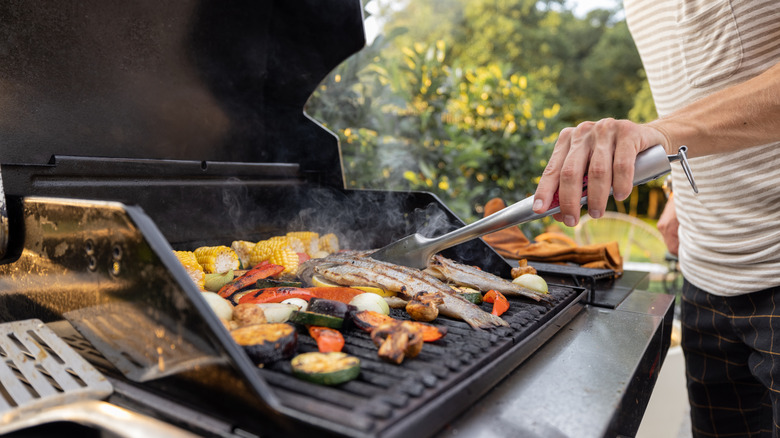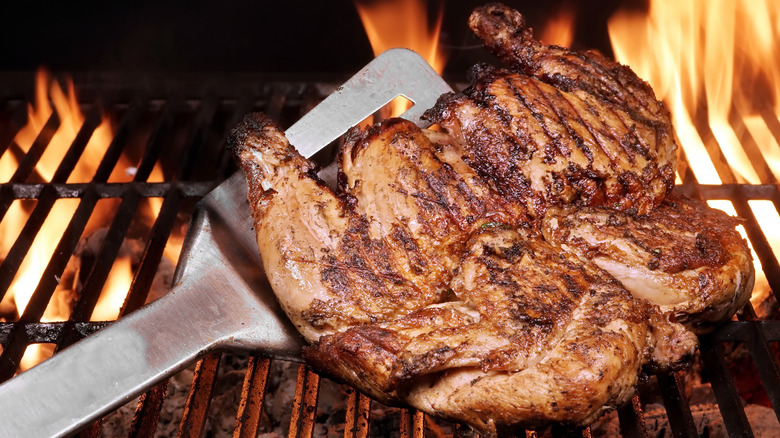Are Gas Grills More Dangerous Than Charcoal?
There are few things that epitomize summer backyard gatherings better than the barbecue grill. Maybe it's burgers by the pool, hot dogs and brats at the lake, or even caramelized and smoky grilled fruit to top off an evening on the patio. Even if the enjoyment of grilled food is unanimous, sometimes the debate over which type of grill is best can become a heated topic of discussion. Is charcoal the ideal style for grilling the perfect cut of meat, or should you depend on the consistency of a gas grill to get the job done?
One factor to consider when it comes to this debate is the safety of the grill type in question. According to the National Fire Prevention Association, fire departments in the U.S. were called to an average of 10,600 grill-related fires each year between 2014 and 2018. These incidents resulted in millions of dollars in damages, hundreds of injuries, and even deaths. And sadly for gas grill fans, 84% of those grills involved in the fires were gas-fueled, as opposed to charcoal, wood, or another solid source.
The National Fire Prevention Association offered several factors that led to the gas grill fires, such as leaky, dirty, or broken equipment and proximity to things that can easily catch fire. While this may change some opinions about the best way to grill, there are plenty of ways to stay safe while still enjoying the classic flavors of a barbecue.
How to stay safe while using a gas grill
There are pros and cons to both charcoal and gas grills, so it really comes down to personal preference and the reason you're grilling (via New York Times). Charcoal connoisseurs rave about browned crusts, rich flavors, and searing meat at high heat; but the ease and reliability of a gas grill makes a weeknight dinner simple and tasty — whether that looks like a classic hamburger or zesty Mediterranean skewer. Whichever method is the winner in your book, there are some important tips to stay safe during barbecue season.
When using any grill outside, the Hearth, Patio, and Barbecue Association explains one of the most vital things is to have plenty of space and ventilation, keeping flammable items (like party décor, tablecloths, and even your home's siding) at a distance. Have a fire extinguisher nearby (or a bucket of sand as an alternative) and remain attentive.
The key to gas grilling is the gas itself: often propane, as it's easy to refill or replace and does a great job of heating. If a propane cylinder is connected, make sure that it is turned off when you aren't actively grilling. Like any good tool, Consumer Reports shares your gas grill should be maintained regularly. Spring is a great time to check for rust and make sure all knobs, valves, and gas lines are in working order. The owner's manual will provide information on how to keep your specific model clean, and may have other tips and suggestions for routine equipment checkups.
Armed with this knowledge, there's no reason you can't safely operate a gas grill — just be sure to avoid the risky behaviors shared by the National Fire Prevention Association.

